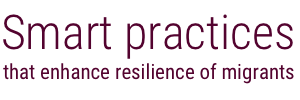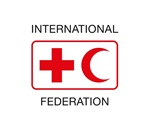A condensed version of the volunteer training programme that can be rolled out to quickly provide volunteers with the most essential skills.
During the large influx of migrants into Malmo in the autumn of 2015, the National Society was overwhelmed with volunteers. However, in order to serve as National Society volunteers, all individuals require training. Due to time constraints and the urgency of the response, a condensed version of volunteer training was rolled out to provide individuals with the most relevant basic information required. The result was a three-hour training that covered: information routines on site (do’s and don’ts and the National Society’s role on site); the meaning of volunteerism; the relationship between the Red Cross Red Crescent and its volunteers; the code of conduct for volunteers; the Fundamental Principles; an introduction to how the Red Cross Red Crescent is active locally and internationally; the basic asylum process (including some facts and figures); and what support is provided locally and internationally for people who are forced to flee. At the end of the training, the people who wanted to start volunteering had to sign an agreement (confidentiality promise and adherence to the Fundamental Principles) and were then given the link to the volunteering schedule. These courses were administered by the volunteer coordinator with support from either a face-to-face trainer, volunteers who usually train the local branch’s new volunteers, or other staff members in the emergency response team. Due to the abridged nature of the training, volunteers were also encouraged to consult the e-learning platform and work closely with more experienced colleagues, to learn from them in the course of a response.
- Fears that volunteers were not being provided enough time to absorb lessons or enough training to be able to respond flexibly and innovatively.
- Volunteer recruitment and induction would have been more efficient if an abridged version of the training has been ready for deployment.
- Information on self-care and on the normal responses of a volunteer in an emergency (and how to deal with them) would have been advantageous for the volunteers during the introduction training.

